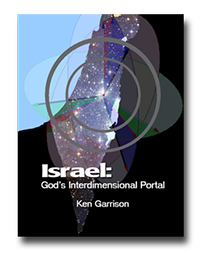 The final words of Moses to Israel reveal that he understood what would happen in their future. Obviously, God revealed to Moses these things. God knew that Israel would act unfaithfully after they had entered the land that He was giving them (Deuteronomy 31:16-18). We know now, due to hindsight, that this would lead to Israel being dispersed from the land. This happened about 800 years after the days of Moses. Jeremiah was the prophet who functioned at the time when Israel was being judged leading to their dispersion. He declared the reason for the judgment:
The final words of Moses to Israel reveal that he understood what would happen in their future. Obviously, God revealed to Moses these things. God knew that Israel would act unfaithfully after they had entered the land that He was giving them (Deuteronomy 31:16-18). We know now, due to hindsight, that this would lead to Israel being dispersed from the land. This happened about 800 years after the days of Moses. Jeremiah was the prophet who functioned at the time when Israel was being judged leading to their dispersion. He declared the reason for the judgment:
“The Lord said, “Because they have forsaken My law which I set before them, and have not obeyed My voice nor walked according to it” (Jeremiah 9:13).
As a result, God’s people were driven from the land.
Even after such dispersion, God gave the promise of the ingathering of the people of Israel to the land of Israel. If and when Israel repented, God declared,
“Then the Lord your God will restore you from captivity, and have compassion on you, and will gather you again from all the peoples where the Lord your God has scattered you. If your outcasts are at the ends of the earth, from there the Lord your God will gather you, and from there He will bring you back. And the Lord your God will bring you into the land which your fathers possessed, and you shall possess it; and He will prosper you and multiply you more than your fathers.” (Deuteronomy 30:3-5)
Even if Israel didn’t repent in the manner prescribed above, God declared that He would bring them back to possess the land for God’s own name sake. (See Ezekiel 36:22-28).
We have previously summarized our position concerning the addendum to the Sinai covenant announced by God at Mt. Nebo. This is sometimes referred to as the “Covenant in Moab” or “the Palestinian Covenant”. This latter label is absurd but is commonly used. The Covenant made at Mt. Sinai dealt with the relationship between God and His people. This was an extension of the previous covenant made with Abraham and is eternal (Genesis 17:19). The covenant addendum made at Mt. Nebo established what would be required of Israel to occupy and continuously possess the land of Israel. This was Israel’s work of ministry and was conditional upon their faithfulness. If they were unfaithful, they would be judged. The ultimate judgment if they continued in unfaithfulness would be their exile from the land. When Israel failed with regard to this addendum, God did not want anyone to conclude that He had cut off His people. Jeremiah understood this. He declared at the time of the dispersion:
“Thus says the Lord, who gives the sun for light by day and the fixed order of the moon and the stars for light by night, who stirs up the sea so that its waves roar; The Lord of hosts is His name; “If this fixed order departs from before Me, declares the Lord, “Then the offspring of Israel also will cease from being a nation before Me forever, Thus says the Lord, “If the heavens above can be measured, and the foundations of the earth searched out below; Then I will also cast off all the offspring of Israel for all that they have done, declares the Lord.” (Jeremiah 31:35-37)
Note that Jeremiah is referring to the relationship aspect of the covenant.
Paul, in his letter to the church at Rome, declared the same message. He wrote,
“I say then, God has not rejected His people, has He? May it never be! (Romans 11:1a), and “I say then, they did not stumble so as to fall, did they? May it never be! (Romans 11:11a).
Clearly, Paul understood the distinction between the relationship aspects of Israel’s covenant and the ministry aspects of it. It is unfortunate that the Church Fathers of subsequent centuries did not grasp what Paul understood. They concluded that God revoked His relationship with Israel and replaced them with the Church. This is the unscriptural doctrine of “Replacement Theology” common in Christian thought today.
God is calling real, committed believers to recognize the simple truth of Israel’s election and to identify with Israel rather than with the “universal church” and to function alongside of Israel in the quest for the Kingdom of God coming to planet earth. A famous rabbi once prayed:
“Thy kingdom come, thy will be done on earth as it is in Heaven….” Matthew 6:10)
Another common misconception in Christian teaching is exposed in this section. You have heard it said that Christians aren’t responsible for the “Law” (Jesus fulfilled it) and that the “Law” was only for the Jewish people (Christians relate to God through grace). Furthermore it is said that no one can keep the law. Moses disputed this position.
“For this commandment which I command you today is not too difficult for you, nor is it out of reach.” (Deuteronomy 30:11)
Actually the “Law” is simply Biblical lifestyle to which most serious Christians adhere to with notable exceptions (festivals and kosher food). Contrary to popular thought, the “Law” was never given as a means of justification before God. Justification has always been by grace never by adherence to the “Law”. Serious Christians need to rethink their position relative to the “Law”.

